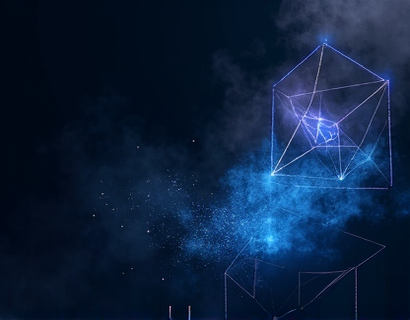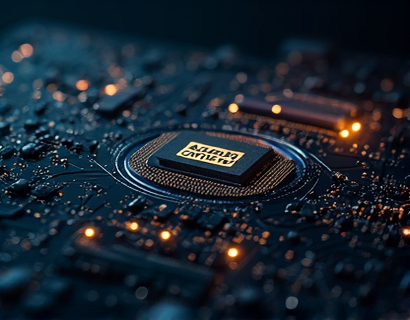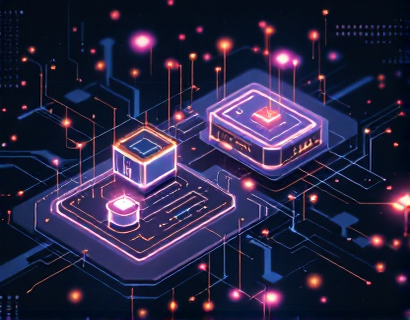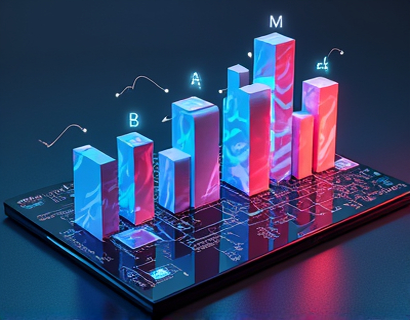Blockchain Oracle Management: Revolutionizing Decentralized Applications with Advanced Data Integration and Smart Contract Solutions
In the rapidly evolving landscape of blockchain technology, the integration of reliable and efficient data sources is crucial for the success of decentralized applications (dApps). Blockchain oracle management emerges as a pivotal solution, enabling dApps to access real-time external data and interact seamlessly with off-chain services. This comprehensive guide delves into the transformative impact of advanced oracle management and smart contract solutions, highlighting how these technologies optimize data integration and enhance security, thereby unlocking the full potential of blockchain applications.
Understanding Blockchain Oracles
Blockchain oracles serve as the bridge between the blockchain and the external world, providing dApps with the necessary data to function effectively. These oracles fetch data from various sources, such as APIs, databases, and IoT devices, and relay it to smart contracts on the blockchain. Conversely, they can also send data from the blockchain to external systems, facilitating bidirectional communication. The reliability and accuracy of this data are paramount, as they directly influence the decision-making processes within dApps.
The Importance of Oracle Management
Effective oracle management is essential to ensure that the data fed into smart contracts is accurate, timely, and secure. Poorly managed oracles can lead to data discrepancies, security vulnerabilities, and even the failure of smart contracts. Advanced oracle management solutions address these challenges by providing robust mechanisms for data validation, redundancy, and security. These solutions enable developers to select and integrate multiple oracles, cross-verify data, and automatically handle anomalies, thereby enhancing the overall reliability of dApps.
Advanced Data Integration Techniques
One of the key advantages of advanced oracle management is its ability to streamline data integration processes. Traditional methods often involve manual data fetching and manual error handling, which are prone to human error and inefficiencies. Modern oracle management platforms automate these processes, allowing for real-time data synchronization and automatic error detection and resolution. This automation not only reduces the workload on developers but also ensures that dApps have access to the most up-to-date and accurate data.
Moreover, these platforms support various data sources and formats, enabling seamless integration with a wide range of external systems. Whether it's fetching real-time stock prices, weather data, or social media trends, advanced oracle management solutions provide the flexibility and scalability needed to meet diverse dApp requirements. This versatility is crucial for building comprehensive and functional decentralized applications that can operate in multiple domains.
Enhancing Smart Contract Functionality
Smart contracts are the backbone of decentralized applications, executing predefined actions based on specific conditions. However, their functionality is heavily dependent on the quality and reliability of the data provided by oracles. Advanced oracle management solutions enhance smart contract functionality by ensuring that the data used in contract executions is accurate and trustworthy. This reliability is critical for applications that involve financial transactions, supply chain management, and other scenarios where data integrity is paramount.
For instance, in a decentralized finance (DeFi) application, accurate and timely data on interest rates, market prices, and transaction volumes is essential for the proper functioning of lending and borrowing protocols. By leveraging advanced oracle management, these protocols can access real-time data, adjust rates dynamically, and execute transactions with high precision, thereby improving user trust and adoption.
Security Considerations in Oracle Management
Security is a top priority in blockchain oracle management. Oracles act as trusted third parties, and any vulnerability in these entities can compromise the entire dApp. Advanced oracle management solutions incorporate multiple security measures to mitigate risks. These include data source diversification, where data is fetched from multiple independent oracles to prevent single points of failure, and cryptographic techniques to ensure data integrity and authenticity.
Additionally, these solutions often implement reputation systems to rate and rank oracles based on their performance and reliability. This allows dApps to prioritize data from more trustworthy sources, further enhancing security. Regular audits and updates to the oracle management system are also crucial to address emerging threats and vulnerabilities, ensuring that the dApp remains secure over time.
Real-World Applications and Use Cases
The benefits of advanced oracle management and smart contract solutions are evident in various real-world applications. One prominent example is decentralized prediction markets, where users can bet on future events such as election outcomes or sports matches. These markets rely on accurate and timely data to determine payouts. By using reliable oracles, prediction markets can provide fair and transparent outcomes, increasing user trust and participation.
Another use case is decentralized gaming, where in-game assets and events can be tied to real-world data. For instance, a gaming platform could use oracles to sync player statistics with external sports data, creating dynamic and engaging gameplay experiences. This integration not only enhances the gaming experience but also opens up new revenue streams through in-game purchases and subscriptions.
Challenges and Future Directions
Despite the numerous advantages, the adoption of advanced oracle management and smart contract solutions faces several challenges. One major hurdle is the interoperability between different blockchain platforms and external systems. Standardizing data formats and communication protocols is essential to facilitate seamless integration and broader adoption. Additionally, the scalability of oracle networks remains a concern, as the increasing number of dApps and data sources requires robust and efficient data handling mechanisms.
Looking ahead, the development of cross-chain oracles and the integration of machine learning algorithms to predict and validate data can further enhance the capabilities of oracle management systems. These advancements will not only improve the accuracy and reliability of data but also expand the scope of applications that can benefit from blockchain technology.
Conclusion
Blockchain oracle management and smart contract solutions represent a significant leap forward in the evolution of decentralized applications. By addressing the critical need for accurate, timely, and secure data integration, these technologies empower developers and businesses to build more robust, reliable, and functional dApps. As the ecosystem continues to mature, the potential for innovation and growth in the blockchain space is immense, paving the way for a decentralized future where data and smart contracts work in harmony.










































